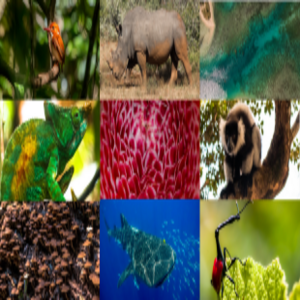New law takes the Cerrado’s ecosystem services into account

Brazil’s Federal District is amending its Forest Compensation Act in order to better preserve the Cerrado and maintain the biome’s ecosystem services.
Work has been under way since the end of 2016 in the central Brazilian Cerrado to draw up a new Forest Compensation Act. It will regulate ways to compensate appropriately for degraded forest sites. The previous law requires 30 new seedlings to be set for each tree of a native species felled, and 10 for each non-native tree. This form of regulation has attracted criticism because the compensation site’s biological diversity and ecosystem services usually fail to match those of the degraded site.
The Cerrado in central Brazil, a savanna-like landscape covering 2,036,448 km², is South America’s second largest biome and a hotspot of biological diversity. It hosts many endemic animal and plant species. Its importance to society is also huge. Indigenous peoples and traditional communities such as the Quilombolas, Geraizeiros, Ribeirinhos, Babaçueiras and Vazanteiros depend upon the Cerrado’s natural resources. With their traditional knowledge about local nature, these groups are a key element of Brazil’s historical and cultural heritage. Yet advancing land-use change is putting social and biological diversity at risk.
For many years now, mounting land-use pressure, driven particularly by the expansion of farming and by logging for charcoal production, has caused resource scarcity and is thus curtailing the services provided by this ecosystem to the people who live in it.
The Forest Compensation Act, a law designed to compensate for degraded Cerrado areas, addresses this pressure in the Cerrado of the Federal District (Distrito Federal) that contains Brazil’s capital city, Brasília. The Act’s provisions seek to ensure ecological equivalence between what is lost and what is gained. The law requires replanting for each tree felled, but has not until now regulated the quality of compensation sites in terms of their biological diversity and ecosystem services. Moreover, the Act has not allowed the award of protected status to endemic vegetation areas as an alternative type of compensation measure. The costs of compliance with the Act are high although its ecological benefit is not necessarily assured.
This is why a new Forest Compensation Act is being drafted. With input from two projects promoted by the International Climate Initiative (IKI) – ‘TEEB Regional-Lokal’ and ‘ValuES’ – the Environment Secretariat of the Federal District is cooperating with the Cerrado Alliance, a group of more than 50 governmental and private institutions and civil-society organisations working to preserve and restore the Cerrado. The new Act will allow two forms of compensation: restoring a degraded site, or conferring protected status on an ecologically valuable site. A discussion paper has been produced to inform debate on the draft.
The discussion paper proposes that the compensation criteria, which were formerly limited to the number of trees felled, be expanded to embrace further factors relevant to a site’s ecosystem functions and services, such as the quality of the soil, the number of exotic species, the rarity of endemic vegetation and the integrity of the landscape’s hydrological balance.
The discussion paper on ways to define ecological equivalence for the purposes of the Forest Compensation Act uses the ‘choice experiment’ evaluation method. The Conservation Strategy Fund (CSF) and the Environment Secretariat of the Federal District produced the paper with input from the Brazilian Environment Ministry, the Chico Mendes Institute for Biodiversity Conservation and Germany’s Deutsche Gesellschaft für Internationale Zusammenarbeit (GIZ) GmbH. The process of drawing up the revised Act is expected to be completed in the course of 2017.
The link has been copied to the clipboard
Contact
IKI Office
Zukunft – Umwelt – Gesellschaft (ZUG) gGmbH
Stresemannstraße 69-71
10963 Berlin








